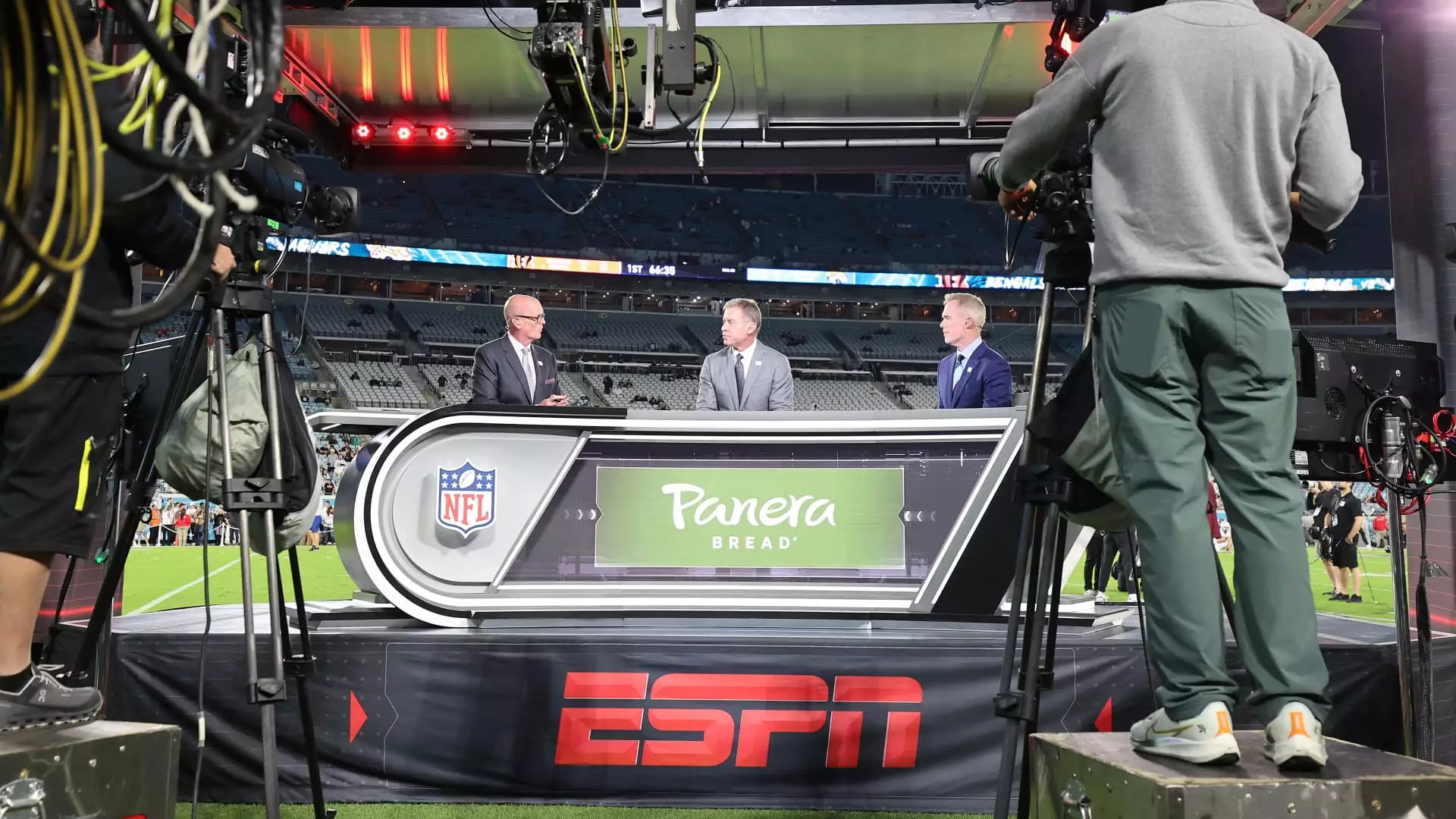The ongoing battle between DirecTV and Disney has left millions of customers in the lurch, unable to watch premium content such as the NFL’s opening “Monday Night Football” game on ESPN. The root of the issue lies in a negotiation stalemate over fees and bundling, leading to a blackout of Disney-owned channels on DirecTV’s network. This has caused DirecTV customers to miss out on key sporting events like the US Open and college football games. Given the increasing trend of cord-cutting and the rise of streaming services, this fight highlights the changing landscape of television consumption.
ESPN, a flagship channel of Disney, is known for attracting high viewership and commanding top fees from pay-TV providers. With live sports being a major draw for audiences, the battle over carriage fees reflects the struggle between traditional television bundles and streaming alternatives. The loss of access to ESPN and other Disney-owned channels underscores the influence of major networks in shaping consumer choices and subscription preferences. As the industry faces increased competition and evolving consumer behaviors, the outcome of this dispute holds significant implications for both networks and viewers.
Legal and Regulatory Challenges
DirecTV’s decision to file a complaint with the Federal Communications Commission against Disney reveals the complex legal dynamics at play in carriage disputes. Allegations of anticompetitive behavior and bad faith negotiations underscore the high stakes involved in securing favorable terms for content distribution. The legal maneuverings by both parties reflect a broader trend of regulatory intervention in the media industry, as companies seek to protect their interests and challenge the status quo. The outcome of this legal battle could set a precedent for future negotiations and industry practices.
The DirecTV and Disney carriage battle epitomizes the tensions between content providers and distributors in an increasingly fragmented media landscape. As streaming services gain prominence and traditional cable subscriptions decline, the need for innovative approaches to content delivery and pricing becomes paramount. The outcome of this dispute will not only affect immediate access to popular programming but also shape the future of content distribution and consumer choice. As viewers navigate the changing landscape of television, the DirecTV-Disney battle serves as a cautionary tale of the challenges and opportunities facing the media industry.
The DirecTV and Disney carriage battle highlights the complex interplay between content providers, distributors, and viewers in the evolving media landscape. As negotiations continue and legal battles unfold, the implications of this dispute reverberate throughout the industry. With millions of viewers caught in the crossfire, the real-world consequences of these conflicts underscore the need for greater transparency, fairness, and accountability in content distribution. As the battle rages on, the future of television hangs in the balance, with far-reaching effects on how we consume and engage with media content.

